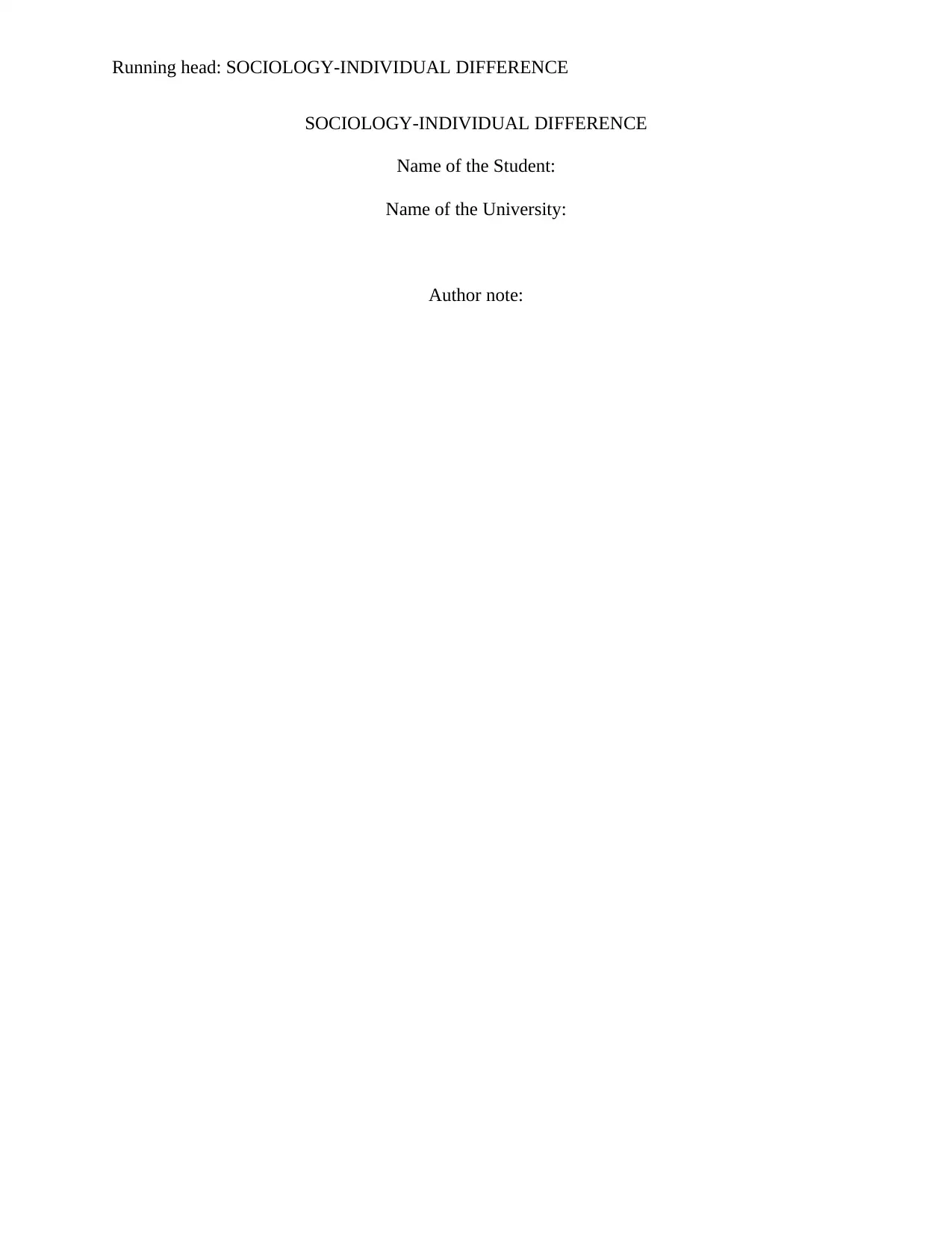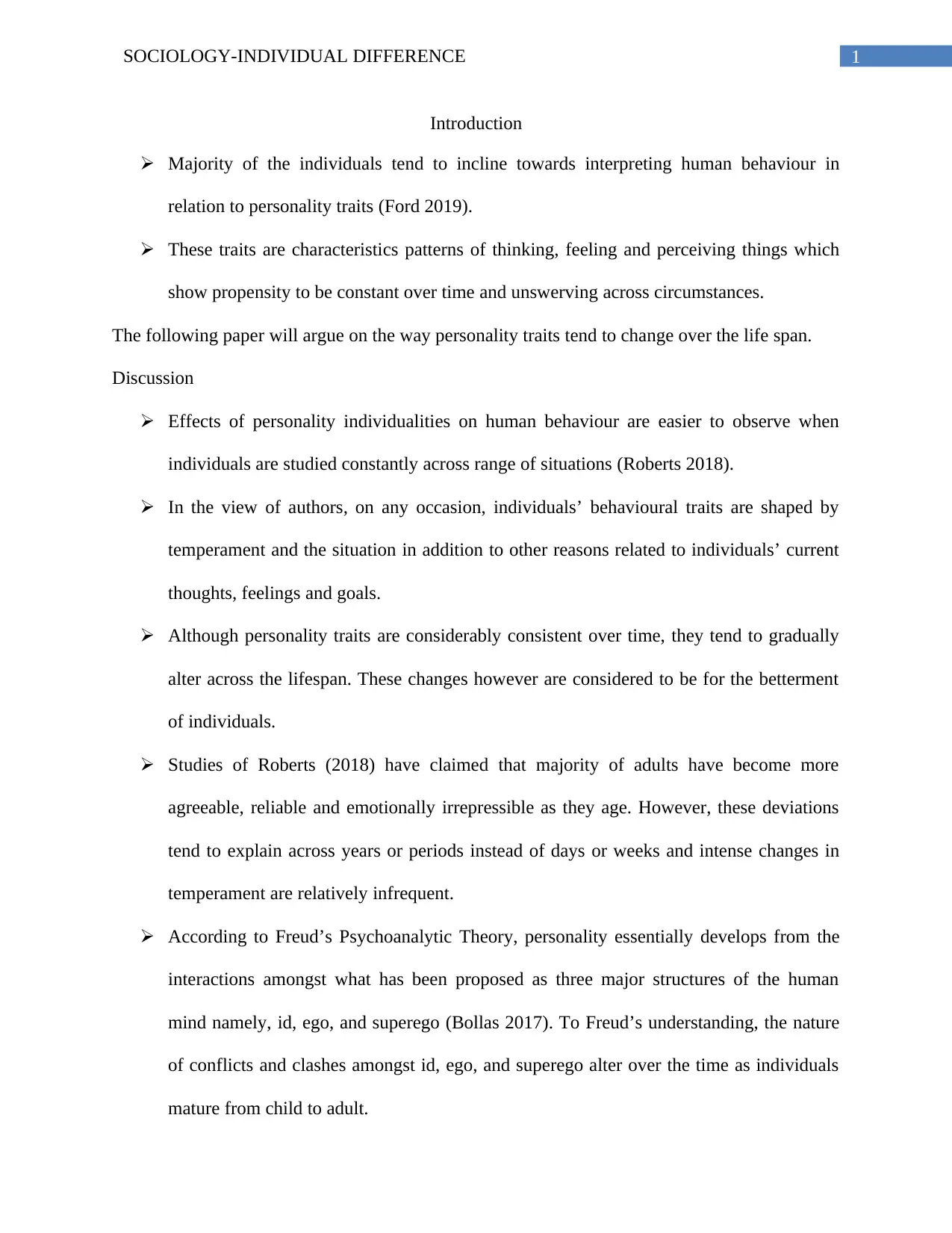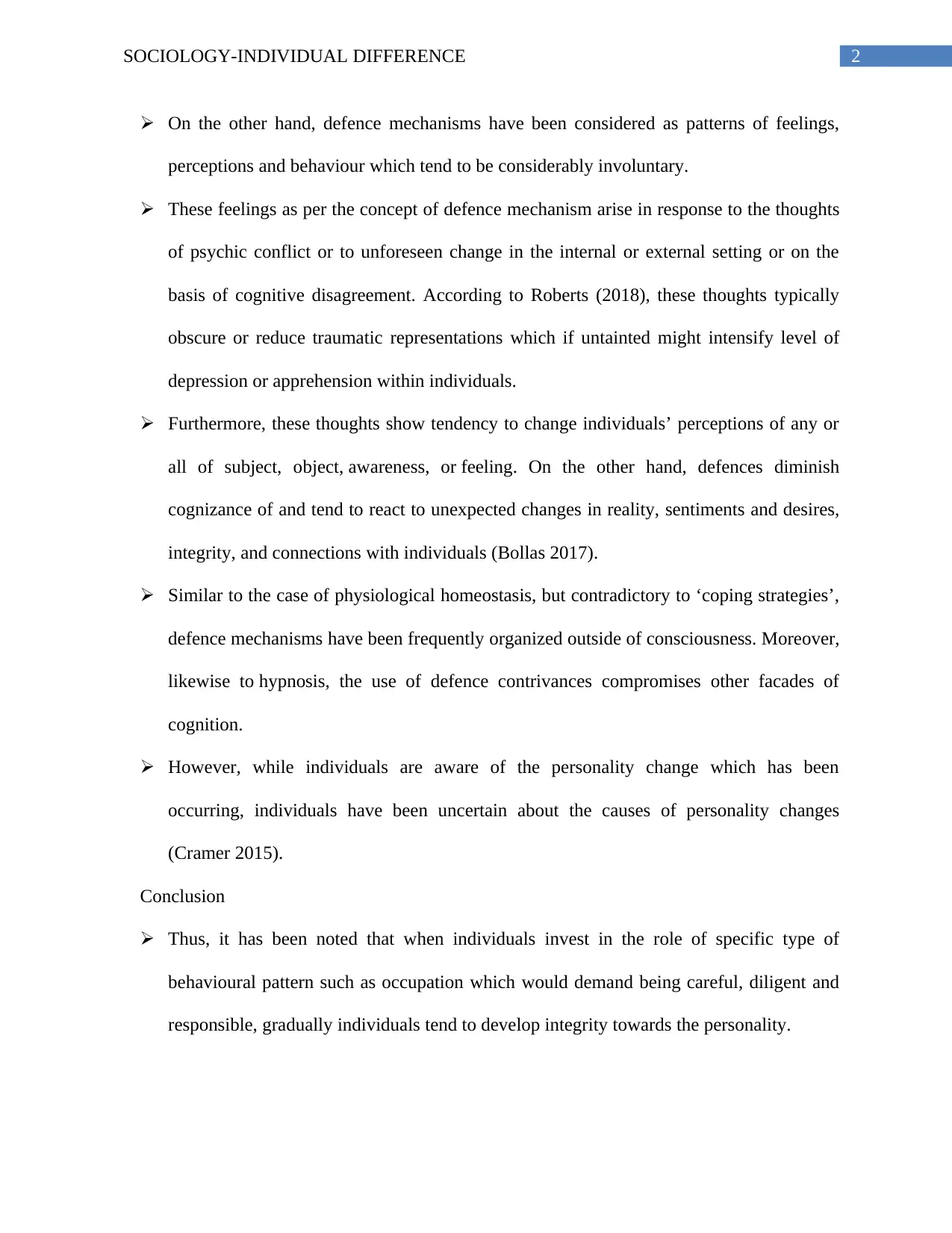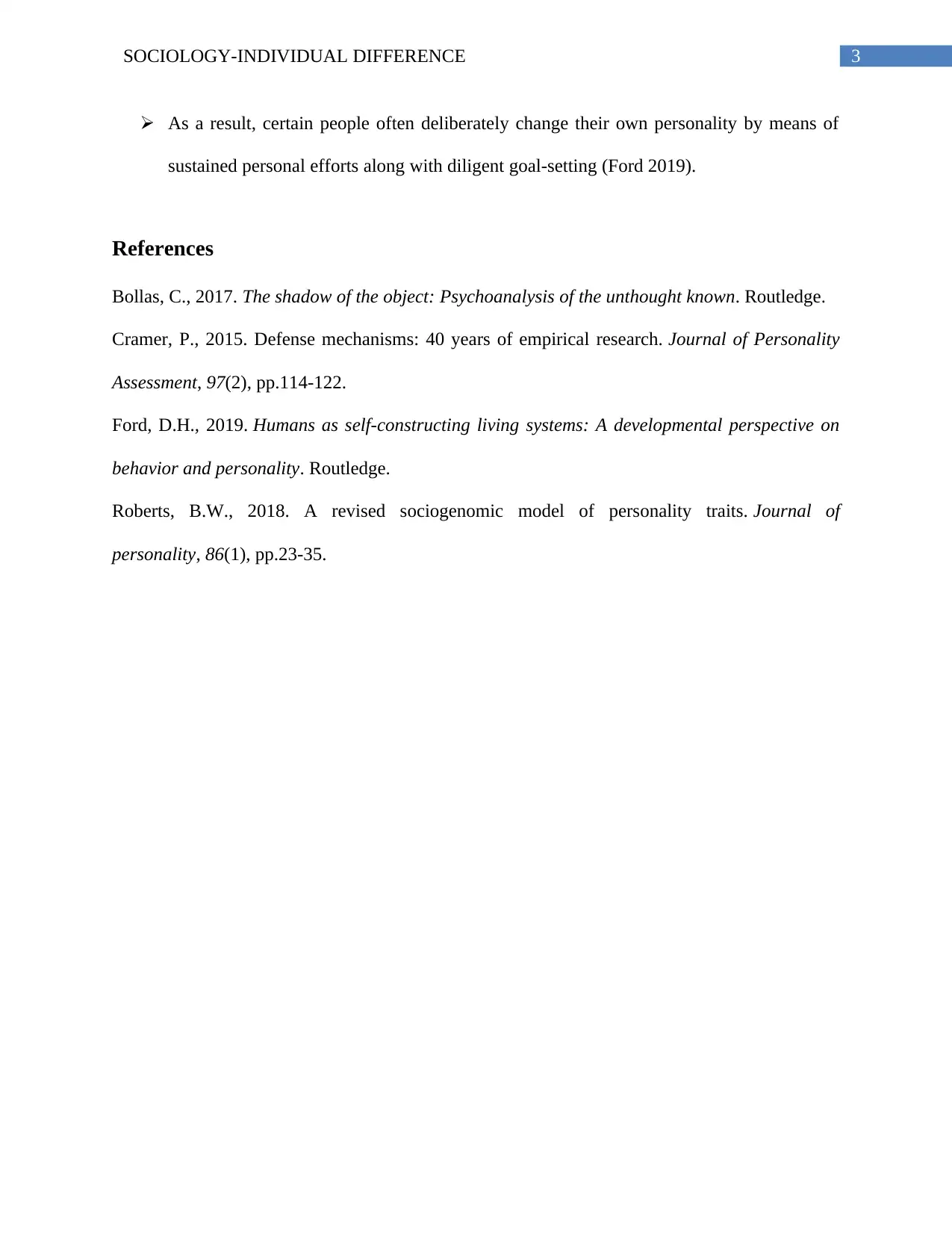University Sociology: Individual Differences and Personality Changes
VerifiedAdded on 2022/10/10
|4
|692
|175
Essay
AI Summary
This essay explores the dynamic nature of personality traits and how they evolve throughout the lifespan. It delves into the sociological and psychological perspectives on personality, examining how individual differences manifest and change over time. The essay discusses the influence of factors like temperament, situational contexts, and personal efforts on shaping behavioral patterns. It also analyzes Freud's psychoanalytic theory, including the roles of the id, ego, and superego, as well as defense mechanisms in influencing personality development. The study highlights the gradual, yet significant, shifts in traits such as agreeableness and emotional stability, and how individuals can deliberately influence their personality through goal-setting and consistent effort. Overall, the essay emphasizes the interplay between nature, nurture, and personal agency in shaping an individual's personality trajectory.
1 out of 4











![[object Object]](/_next/static/media/star-bottom.7253800d.svg)